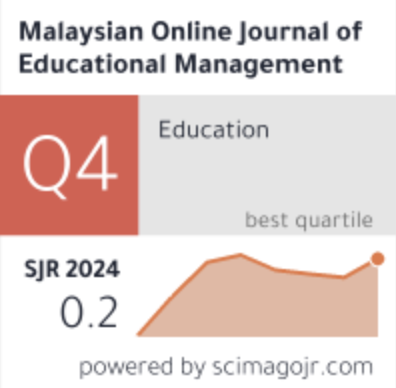DETERMINANTS OF ACADEMIC ACHIEVEMENT AT SECONDARY LEVELS: A STUDY IN MAGURA DISTRICT OF BANGLADESH
Abstract
The purpose of this study was to identify the factors influencing academic achievement of secondary students in Magura district of Bangladesh. Using survey design, this study was carried out in a total of eight educational institutions, including schools, colleges, and Madrasah, both in urban and rural areas of Magura district. Administering a self-reported questionnaire (SRQ), segmented into four different modules, data were collected from 566 students of various levels of secondary education system following proportionate multistage random sampling. The exploratory factor analysis (EFA) suggests a four-factor solution, and the role of teacher’ explained the most variations. The hierarchical regression analysis show that academic achievement of secondary students was influenced by track of education (0.173, p < 0.001), education (-0.221, p < 0.001), socioeconomic status (0.137, p < 0.05), location (0.176, p < 0.01) as well as size of class (-0.068, p < 0.10), academic stress (-0.071, p < 0.10) and motivation (0.145, p < 0.001). Despite some limitations, this study has contributed empirically to a limited literature on academic achievement of secondary students in Bangladesh. Based on the results, it is strongly suggested that the government should implement an education system involving all the stakeholders, including students, parents, teachers, and educational administrators to re-direct future education policies and strategies to achieve an all-inclusive and equitable education for all. Besides, the policymakers should address the socioeconomic composition of schools, colleges and similar educational institutions and need to provide adequate human, financial and technical resources to improve overall educational and learning environments to achieve a sustainable education system.









